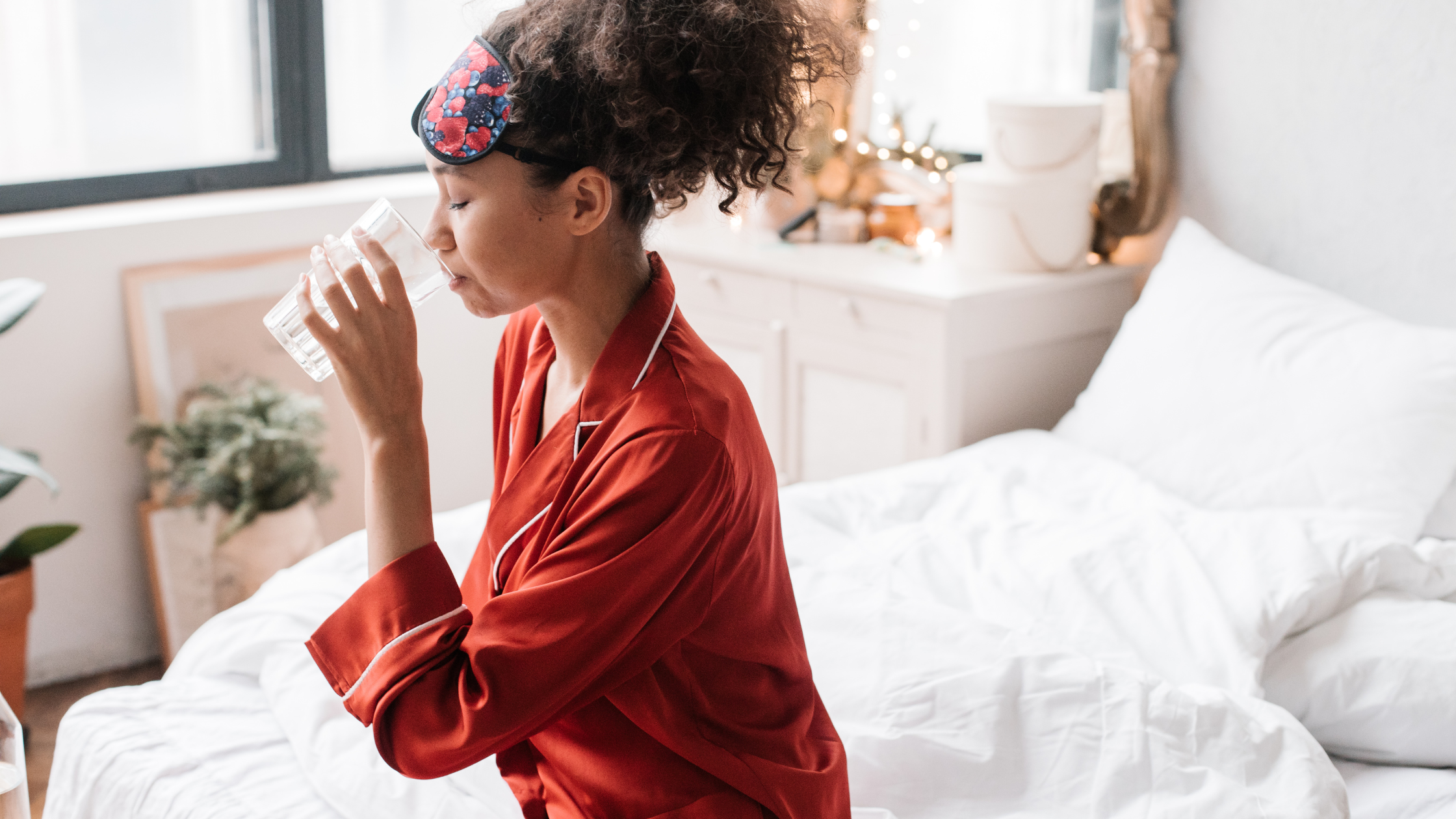
Have you ever woken up in the middle of the night completely parched? This could be because you went to bed dehydrated. Dehydration occurs when the body loses more water than it takes in. Symptoms of dehydration include dry mouth, sore throat, and less urination. However, if dehydration is severe, then you can even feel faint and confused. Dehydration can even impair basic metabolic processes if it gets too severe.
There is a complex relationship between dehydration and sleep that is not entirely understood. Continue reading to learn more about how dehydration may affect sleep, how how poor sleep might affect hydration, and your ability to stay hydrated throughout the night.
The relationship between dehydration and sleep
There are not a lot of studies that have looked at how sleep and dehydration have been connected. However, some of the preliminary studies have shown that those who sleep less are likely to be less hydrated. Researchers don't fully understand how a lack of sleep impacts hydration status, but they have found some potential connections.
Drinking more water and staying hydrated is associated with better quality sleep. There is limited evidence on how dehydration can directly affect a person's sleep. But, dehydration can cause other symptoms like headaches, which may make it more difficult for one to achieve quality sleep.
There also may be a connection between obstructive sleep apnea, (OSA), and hydration levels. Researchers think that staying well-hydrated could relieve some of the issues associated with OSA. OSA is a sleep-related breathing disorder that causes individuals to wake up repeatedly throughout the night to breathe. The inability to breathe is normally caused by obstruction from surrounding muscles or a large tongue. Lubricated, or hydrated muscles may causes less obstruction and be less "sticky" to one another.
Poor sleep may lead to dehydration because the body has trouble regulating fluids. In the later hours of the night, the body releases a hormone called vasopressin which can help the body retain fluids. If deeper sleep doesn't occur, then this hormone is not released, and the body does not retain fluids. More research is still needed on this as the relationship is still not entirely clear.
Also, during the night, certain sleep problems could lead to more nighttime fluid loss, like night sweats. These are common, and for the most part, very harmless. However, a profuse amount of sweat without proper replacement can lead to dehydration.
Causes of water loss during sleep
The body primarily loses water from urination, bowel movements, and sweating. When one is sleeping, the most likely cause of losing water is sweating in their sleep, or repeatedly urinating throughout the night. There are more subtle forms of water loss, including breathing. However, this may be more important for those who breathe through their mouths while they sleep. I only will this cause increased water loss, but also will dry out the mouth. Most people cannot replenish the fluids that they're losing throughout the night, therefore, they wake up feeling dehydrated.
There are certain risk factors for dehydration. Some of these include: older age, childhood, gastrointestinal, disease, high temperatures, diabetes, or endocrinology disorders, and certain medications like a diuretic.
Preventing dehydration during sleep
In order to prevent dehydration at night, it's important for individuals to replenish their loss fluids during the day. This means staying hydrated all day so that way at night, your body does not lose more water than to gain during the day. In order to do this, you should drink when you're thirsty, use a water bottle, drink water with each meal, and drink water while you exercise. It can be hard to get the recommended amount of water each day. But by incrementally drinking 8 ounces of water each hour, it is easier to achieve the recommended number of cups.
It's also important to avoid substances that will dehydrate you. Caffeine and alcohol are diuretics. This means that they block vasopressin in the body which does not allow the body to retain fluids. This is why you have to urinate more often after drinking coffee and alcohol. When you drink these at night, not only do they stimulate the brain and interrupt your sleep, but they also can cause you to urinate more often at night. Lead to increase fluid loss, as well as interrupted sleep. Avoiding these items at night, and then the late afternoon may help you avoid the symptoms.
If you are struggling with dehydration during sleep, then please click the orange button to take a free online sleep test and talk with one of our sleep health professionals.
https://www.sleepfoundation.org/physical-health/sleeping-heart-rate

